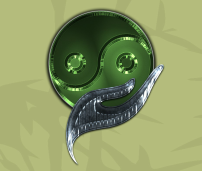|
New research from the University of Michigan has found that your sweat glands do more than just make you feel gross and soggy after a workout, embarrass you in front of that cute guy/girl from your yoga class, and ruin your favorite shirt on an unexpectedly hot day. In addition to helping to regulate your body temperature, eccrine glands (the ones that cover most of the surface of your body) also contain a reservoir of adult stem cells that are recruited for the purpose of wound closure and healing - greatly aiding the process of recuperation from ulcers, sores, and abrasions.
Of course, the researchers involved are more interested in the application of this knowledge to developing better drugs to stimulate healing. But I wonder what implications this has, if any, for the role of exercise and the process of sweating in the healing of wounds. My take-away: another reason to exercise more often is that sweating regularly is likely good for the health of your sweat glands, and also for the health of your skin. So not only will you feel awesome, but you will look awesome too! More details (and the original article) can be found here. In honor of Veterans' Day (observed 11/11/12), Warrior Massage would like to make a special offer to those currently serving in any branch of the US military, those who are veterans of the service, and those who are military families (military spouses and children have made sacrifices for all of us too!).
For the rest of the month of November, bring your military ID or VA benefits card to receive 50% off your massage services. To care for him who shall have borne the battle. Four very good reasons to get enough sleep... if you, like most of us, are trying to lose weight.
The following article comes from Adler-Giersch, a Personal Injury law firm. The information checks out; the short version is this: unless you live in a tropical climate and spend all your time outdoors, you should be taking Vitamin D supplements. If you experience chronic pain, or aches and pains from injuries seem to take forever to go away, then it could be due to Vitamin D insufficiency.
Can Vitamin D Supplementation Promote Chronic Pain Relief from Traumatic Injury? August 2012 Advocate Article By Melissa D. Carter, Attorney at Law Empirical Evidence It is well known that vitamin D promotes both bone and muscle strength. Less known is the extent that a deficiency can increase diffuse pain and impair neuromuscular functioning in individuals suffering from traumatic injury. Recent studies have shown that vitamin D supplements can aid in chronic pain relief, as well as other significant health issues. According to the Centers for Disease Control and Prevention, chronic pain is the leading cause of disability in the United States. Patients suffering from chronic pain following a traumatic injury often end up taking narcotics such as Morphine, Fentanyl or Oxycodone to cope. A 2009 Mayo Clinic study showed that patients who require narcotic pain medication and who also have inadequate levels of vitamin D took much higher doses of pain medication, nearly twice as much, as those who had adequate levels of vitamin D.[1] The patients of this study also self reported worse physical functioning and worse overall health perception than those with adequate levels of vitamin D. Moreover, the study found a correlation between decreasing body mass index and increasing levels of vitamin D. A smaller, concentrated study on 28 U.S. veterans in 2012 revealed similar results. Researchers from Emory University School of Medicine reported a case series that found patients with multiple areas of traumatically induced chronic pain and low serum 25-hydroxyvitamin D concentrations at baseline reported improvements in pain, lack of sleep and quality of life after vitamin D supplementation.[2] The authors of this study reported in the Clinical Journal of Pain that participants had no side effects during the study and that improvements were significant, compared with baseline, in terms of the pain score, sleep latency, sleep duration, bodily pain, general health, vitality and social functioning. How Much Vitamin D is Enough Vitamin D blood levels of 30-40 ng/ml are considered ideal.[3] Supplements of at least 1000 to 2000 IU per day of vitamin D may be warranted, depending upon the individual’s needs (such as chronic pain), geography (living in northern climates without year round sun), and demographics (per a 2003 study conducted by Allina Center for Health Care Innovations of Minnesota, Caucasian women of child bearing age tend to have the lowest blood levels of vitamin D), according to Harvard School of Public Health.[4] Supplements should contain vitamin D3 (cholecalciferol), rather than vitamin D2. Health care providers should discuss the individual needs of each patient and consider specific benefits and risks. As with any nutraceutical supplement, vitamin D supplemental (a vitamin D supplement?) is part of an integrative approach to treatment of patients with chronic pain. Supplementation can be a valuable part of the treatment regimen and many practitioners are beginning to recommend this as part of an anti-inflammatory protocol. Patients who have suffered traumatic injury and/or struggling with the aftermath of chronic pain due to the negligence of another should seek consultation with legal counsel versed in the variety of approaches to management of traumatic injury. If you or your patient requires consultation regarding a traumatic injury, the attorneys of Adler Giersch are available to assist you. [1] http://newsblog.mayoclinic.org/2009/03/20/mayo-clinic-researchers-link-vitamin-d-and-chronic-pain-relief/ [2] Huang, et al. 2012. [3] Allina Center for Health Care Innovations of Minnesota [4] http://www.hsph.harvard.edu/nutritionsource/questions/vitamin-d-and-chronic-disease/ |
Jesse Jones, LMT
Owner and therapist at Warrior Massage Archives
January 2024
Categories |

 RSS Feed
RSS Feed